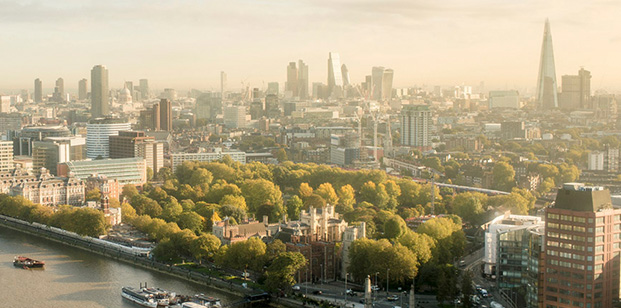The outlook for the UK economy has brightened, according to the Chancellor of the Exchequer’s Spring Statement. Chancellor Philip Hammond described himself as “positively Tigger-like” in the face of an improving economy for which there is “light at the end of the tunnel”.
- The OBR raised this year’s growth forecast to 1.5%
- However, growth remains below many other major economies
- Borrowing is set to fall
The outlook for the UK economy has brightened, according to the Chancellor of the Exchequer’s Spring Statement. Chancellor Philip Hammond described himself as “positively Tigger-like” in the face of an improving economy for which there is “light at the end of the tunnel”.
“The Spring Statement did not contain any fresh revelations on tax or spending policy”
Although the Office for Budget Responsibility (OBR) raised its forecast for the UK’s economic expansion from 1.4% to 1.5% this year, this growth prediction is still lower than many other major economies, including the US, Germany and France. The UK is subsequently forecast to grow by 1.3% in 2019 and 2020, by 1.4% in 2021, and by 1.5% in 2022. The British Chambers of Commerce (BCC) warned that the OBR’s latest estimates highlight the “significant challenges” facing the UK economy in the short term, highlighting an “unbalanced” outlook for economic growth and “subdued” productivity.
Borrowing is expected to fall in every year of the projections. The OBR’s prediction for borrowing in 2018-19 was cut from £49.9 billion to £45.2 billion. Debt will fall as a percentage of GDP from 2018-19, and the UK is expected to meet its cyclically adjusted target in 2020-21. The Confederation of British Industry (CBI) welcomed the upgrade to the public finances, but highlighted “lukewarm” economic growth, urging the Government to secure a favourable Brexit deal. Meanwhile, the BCC hailed the reduced forecasts for the deficit and lower national debt, but called on the Chancellor to use any financial “headroom” to attract investment, particularly in the face of the challenges posed by Brexit.
The Chancellor also announced plans for a range of consultations on future Government policies, including proposals for a tax on single-use plastic goods and measures to ensure that digital business pay the right amount of tax. Elsewhere, the next revaluation of business rates is to be brought forward to 2021; following this, revaluations will take place every three years, rather than every five. The Government also intends to make a further £1.7 billion available to London in order to provide another 26,000 affordable homes.
The Spring Statement did not contain any fresh revelations on tax or spending policy. Nevertheless, looking ahead, Mr Hammond stated that he intends to “set an overall path for public spending for 2020 and beyond” in his Autumn Budget, triggering speculation that he might finally make the decision to loosen the Treasury’s purse strings.









